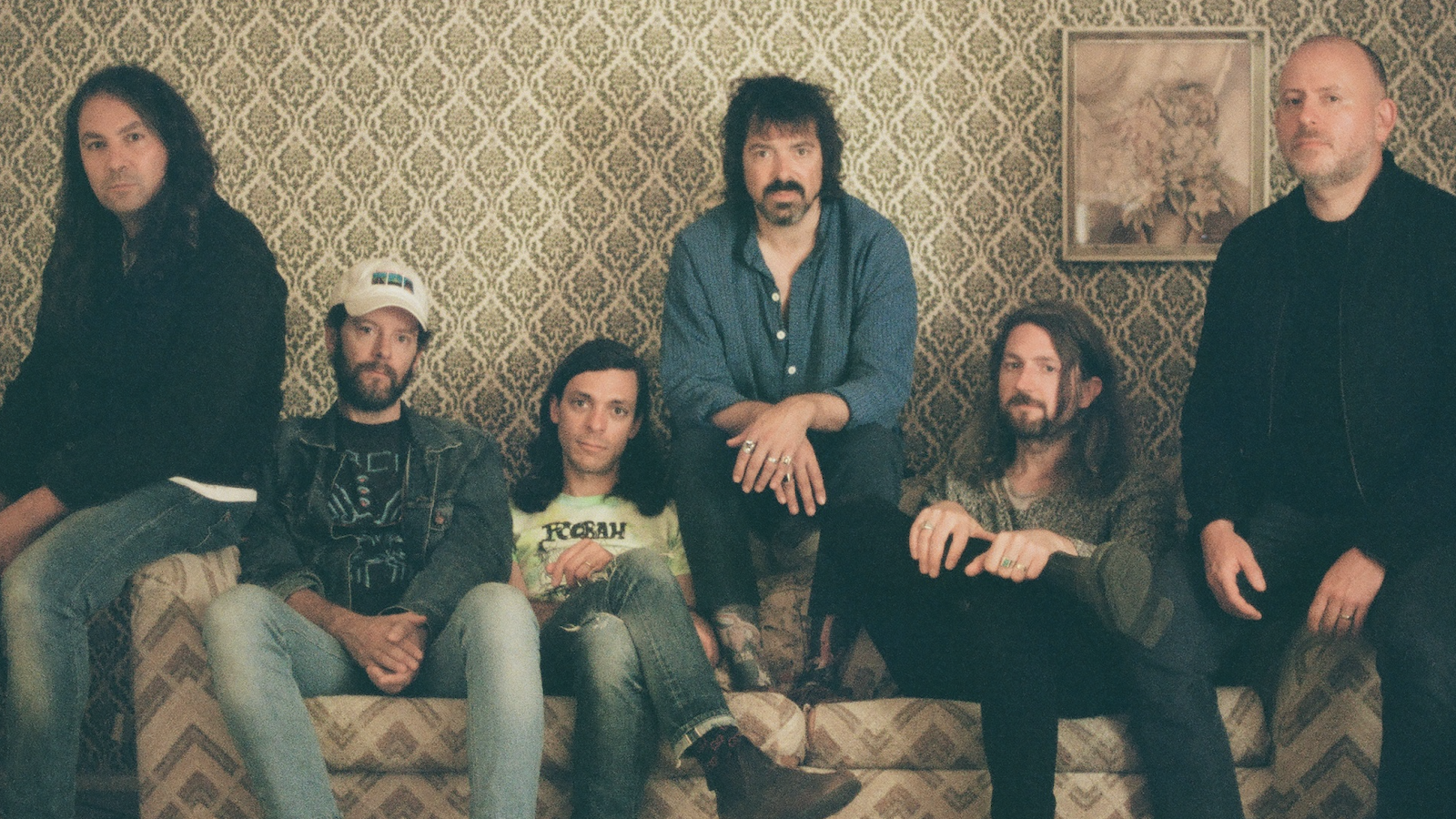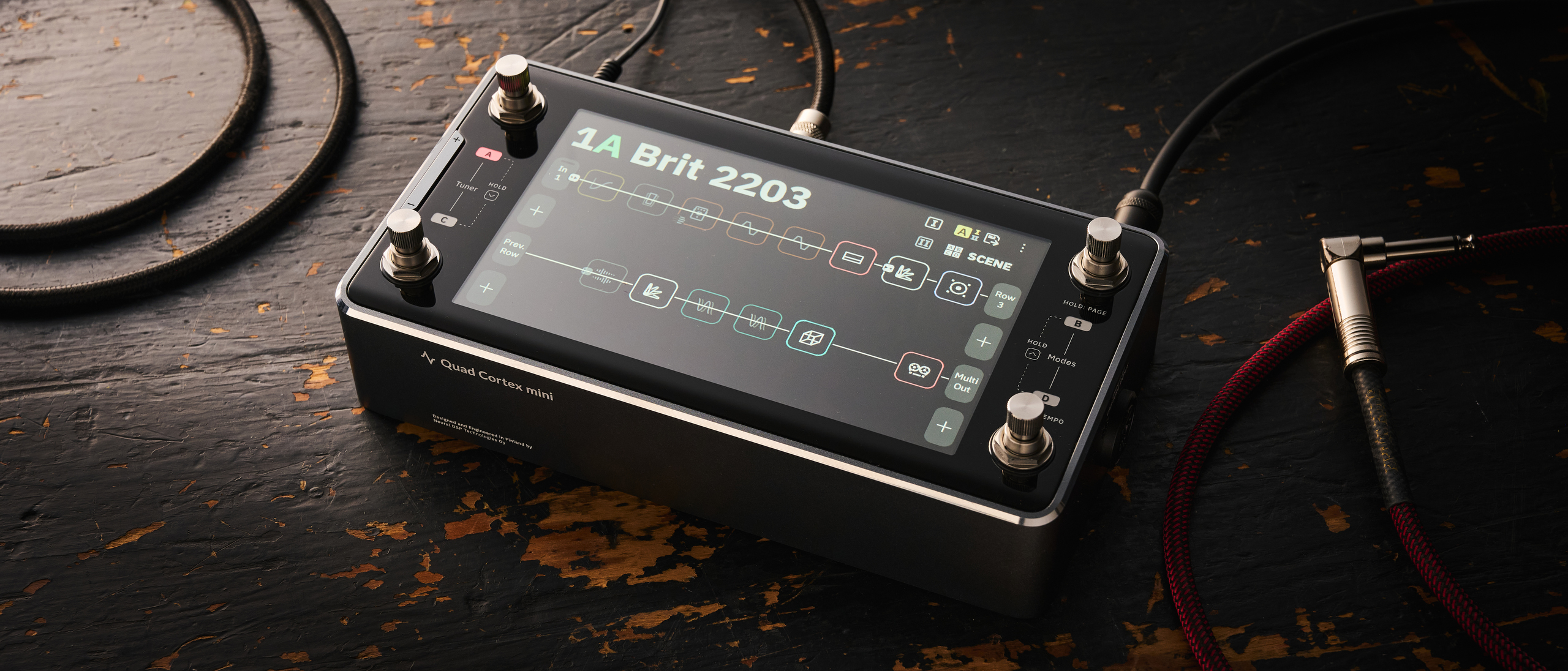The War On Drugs’ Adam Granduciel: “I think this is the first time I’ve actually been excited to release an album”
The War On Drugs frontman Adam Granduciel unpacks the indie stalwarts’ profoundly powerful new album, 'I Don’t Live Here Anymore'

All the latest guitar news, interviews, lessons, reviews, deals and more, direct to your inbox!
You are now subscribed
Your newsletter sign-up was successful
After the Philly-based indie lords in The War On Drugs won a Grammy – taking home the token for Best Rock Album with their 2017 opus, A Deeper Understanding – it makes sense that they’d spend a little more time than usual simmering away on the next record. In addition to being a critical darling, A Deeper Understanding also marked the band’s commercial peak: it was top-ten record in the US, top-five Down Under and top-three in the UK – hell, it outright topped the charts in Belgium and came just one spot shy in the Netherlands, too!
So yeah, there was a little bit of pressure on the sextet for album #4. Thus led to one of The War On Drugs’ most conscientious endeavours in songwriting; they spent three years chipping away on their next LP, holing up in seven studios between LA and New York to hash out over a dozen sessions. They expanded the huddle beyond just themselves, bringing in a pack slate of new collaborators and fresh voices. And when the album was done, frontman Adam Granduciel tells us, he and producer Shawn Everett went back to the decks and pulled it all apart, rebuilding their labyrinthine puzzle from scratch.
The end result is I Don’t Live Here Anymore, which offers a listening experience that is at once pastoral, familiar and comforting, and absolutely, mind-bogglingly foreign. But, like, in an exciting way. Granduciel says that was the whole point, with The War On Drugs putting a stupendous amount of work into a record that feels like it could’ve been hashed out in a day or two.
Right off the bat, how are you feeling about this record?
I think it’s the first time I’ve actually been excited to release an album. Normally it’s just dread. Y’know what I mean? Maybe that’s because this time around, Shawn and I had enough time to do it exactly how we wanted to. We were really confident with what we turned in – not because we think it was the best album ever made or anything, but we were confident in the work we put in with the time we had.
We probably could’ve worked on it for another two years – but there’s no reason why we would’ve needed to. We had to get it done, so we worked on it for about three years, and it felt great – we did a lot of great work on this record. So I’m excited. The last two years have been shitty for everybody, so hopefully we’ve put something out into the world that makes people happy, and takes their mind off whatever else is going on right now.
So this record came together over more than a dozen sessions, spilt between seven studios and three years. Is that normally how you tend to work, or was there a deliberate intent to make this one unique?
No, I feel like we always spend a lot of time recording in multiple sessions. With the last record [2017’s A Deeper Understanding], I had a studio of my own – a lockout in LA – and we went to maybe five or six, seven different places as well. But this time, what made it different was that I had the band out for longer stretches of time. We did three weeks at Vox and then we did another three weeks split between a few different studios. And then Shawn and I bounced around between a couple different places all by ourselves. It definitely felt like the band was involved in a way that they hadn’t been on other albums.
How so?
Well, we started the recording process in 2018. I spent basically the whole year writing and demoing stuff, and I was recording with a lot of different people – not just the band, but people in the band as well as other people who’d played on our records over the years – and we put together these little pick-up groups at studios in Brooklyn or wherever I was. We’d just write and record a lot, and really collaborate.
All the latest guitar news, interviews, lessons, reviews, deals and more, direct to your inbox!
We’d take my song and get people in the room, and everyone would kind of hash out an arrangement or a part, and then we’d record it. And I’d spent about a year doing that, with tons of songs. Then when we started recording for real at the end of that year, over at Electric Lady, we got all the guys in the room and magic just kind of started happening. Within that first week, I think we had one or two songs that ended up on the record. Other stuff was more laboured over.
With going to different studios, it’s always just about trying to grab a little bit of inspiration from... Not so much the studio itself, and not so much the history of the studio, but just getting all the guys into a room at once – flying them out from wherever they live, getting an Airbnb, having the ability to hang out for a week or two, and just hang in the studio all day, trying to just let that camaraderie kind of marinate.
So when you listen back to these songs, do you feel like you can hear the environments you were in, or the headspace those atmospheres put you in?
I don’t think so. I wish I could say that – I wish I could listen to a record and hear our band gelling – but the reality is that so much of it is just an illusion… It’s not laboured over more than anybody else’s record would be, but we go through a lot to make it sound like a pretty casual recording of a band playing. There isn’t that feeling, when I listen to [our music], that I hear the spirit of our band – I think I hear the record, and then I get excited to see how the spirit of our band will channel into the songs [when we perform them]. But I definitely have fond memories of working on these songs, watching them grow and evolve.
Is there an experience you had in those three years that stands out in particular?
Probably the final session I did with Shawn. We had already mastered the record, and we were out there, everyone was waiting for me to turn it in to the label. But Shawn and I were just a little hesitant, because I think we both thought that there was something not right about it yet, or that it wasn’t... It wasn’t ours anymore. And so we had this epic final session at his place in LA, we just went into almost every song and remixed stuff, and we put together a different kind of record than the one that we had essentially mastered just a week before. And then we handed that in as our record. It was such a last-minute thing, but it was so productive and so inspired.
So wait, there’s a whole different version of this album that exists?
I think the changes would be pretty inconsequential... I mean, you could tell that it was a different record, but it isn’t so different that it would be worthy of its own release. They’re all the same songs, It’s just that we felt like there were a few things in some of them that we probably would have looked back on in five months and gone, “Ah, I wish we had changed that,” or, “I wish I had mentioned that those guitars were too quiet."

Ellie Robinson is an Australian writer, editor and dog enthusiast with a keen ear for pop-rock and a keen tongue for actual Pop Rocks. Her bylines include music rag staples like NME, BLUNT, Mixdown and, of course, Australian Guitar (where she also serves as Editor-at-Large), but also less expected fare like TV Soap and Snowboarding Australia. Her go-to guitar is a Fender Player Tele, which, controversially, she only picked up after she'd joined the team at Australian Guitar. Before then, Ellie was a keyboardist – thankfully, the AG crew helped her see the light…
